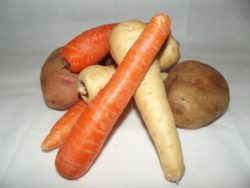Name of Product: Westland Superphosphate
The Best Place to Buy: www.amazon.co.uk
Product Dimensions: 24.2cm x 14.4cm x 7.2cm.
Shipping Weight: 1.1kg.
My Score: 7.5/10
In this article, we will be discussing superphosphates to see if the container garden or gardener really needs it. In a previous article, I talked about sulphate of ammonia that provides nitrogen to plants but the next primary macronutrient on the list is phosphorus and this is where superphosphates come into play.
The question that arises is superphosphate the best source of phosphorus for the gardener? Read on to find out.
To answer this, we need to know what role phosphorus has on plants.
PHOSPHORUS FOR PLANTS
Phosphorus stimulates healthy root growth in plants and to make sure it does so at a good pace. The element is normally found in the form of phosphates and is found in the soil, but this is not always the case. If a plant does not get enough phosphorous, it will cause the roots to be underdeveloped and the leaves will start turning purplish, starting from the bottom.

Another important role of phosphorus is in the formation of fruits and seeds, as without large amounts of phosphorus, fruit and seed will be underdeveloped.
Phosphorus can act as a vehicular to help plants transport sugars and proteins around the plants ensuring that fruit ripens properly and that vegetables grow to their full potential. Phosphorus, therefore, has a role in root, fruit and seed production, so it can be seen as a crucial element.
You now know why you need to use phosphorus, but what is a superphosphate fertilizer?
Superphosphate is an important source of phosphate and therefore of phosphorus. It is vital, as said above for root development and therefore overall health of the plant. It has a nitrogen, phosphorus and potassium ratio of 0: 17.5%:0 and can be seen as a high phosphorous fertilizer on the market.
Its chemical name is calcium superphosphate, Ca [H2PO4]2 or to use the IUPAC name of calcium dihydrogen phosphate. It is a source of calcium and phosphorous, so once again it provides two important elements for plants. Phosphorus is required by plants to perform several functions, breakdown of carbohydrates and transfer of energy.

It has multiple uses in the garden for grasslands, meadows, allotments and in the container garden. If you apply 35 to 50 grams per square metre (a handful to a handful and a half), especially useful if you want a young tuft lawn to establish quickly. Grassroots really love the stuff.
If you have plants that produce an abundance of flowering bud then you need to use superphosphate, It will also encourage higher yields and at an early stage as well.
If you want the plant to have the best availability of phosphorus to the plants, the soil pH must be ideally between 6 and 7. To get the best for plants, it is recommended that it is applied every 4 to 6 weeks during the growing season – March to August. The product should be mixed with the soil or compost before planting and backfilling the hole.
FOR VEGETABLES
Once the vegetables start to grow, you can apply 70g (2 handfuls) per square metre to the soil surface and then fork it into the ground. Best used for carrots parsnips, onions and beetroot. Apply around the plants but make sure that you do not damage the roots.
FOR FLOWERING PLANTS
Apply 70 grams per square metre around each plant and fork it in well. It is best to make sure that the granules do not touch the plant leaves as this can cause the leaves to be scorched. At this application rate, your blooms will look spectacular.
TREES AND SHRUBS
For these apply around the base of established plants at an application rate of 70 grams per square metre. Fork it into the soil surface making sure that any surface roots are not damaged. If it is too compacted and difficult to fork in, then you can sprinkle the granules over the soil near the plant and then thoroughly water, so that the roots can absorb the mixture.
To help a tree and/or shrub to establish quickly, add 40g to the bottom of the planting hole and then mix well with the soil or compost, before refilling the hole with the same compost and superphosphate mixture.
In this way, plants will establish very quickly. This fast-acting plant supplement will help your plants no end.
PROS
- Give your plants an early and late boost to form bigger and/or better harvest of fruits.
- Value for money.
- Highest phosphorus content on the market.
- Contains calcium (great if your tomatoes are suffering from blossom end rot) as a bonus.
- Has multiple uses throughout the garden from vegetables, fruits, trees, shrubs and flowering plants.
CONS
- Like a lot of fertilisers, it has a tendency to form hard lumps if the product gets wet. This makes it difficult to break up and use. It is best to store it in a location that is as dry as possible.
- If the product is too dry, it can also be problematic as when you use its dust can blow into your eyes, The product can cause serious eye irritation, so when using it do not use it on a windy day or without any form of eye protection.
- It is not organic as it is made by the reaction of insoluble calcium phosphate with sulphuric acid to form the soluble salt.
WHY WOULD YOU WANT TO USE SUPERHOSPHATE?
As you can tell superphosphates are great in the garden. If you want a bigger root crop and of better quality, you cannot beat superphosphates.
I have used it in my garden with great success as it does indeed help your plants to grow healthier, producing better blooms and bigger roots.
A secret for gardeners to know is that once potatoes have flowered, they need phosphorus and potassium to form their tuber. Superphosphates provides the phosphorous they need, whilst sulphate of potassium can provide the potassium. I will be reviewing sulphate of potassium shortly. Potatoes are such hungry crops so you will have nothing to lose.
A supplement that has a lot of uses in the garden, so if you want to try it for yourself, you can be clicking here.
Put the super into your garden today.


Hi
I really enjoyed your review of superphosphates as I am never too sure to what fertiliser to use for what situation. I am glad I came across this excellent article, as it has helped me to decide to use this product when I am growing vegetables in the garden or in containers.
Thank you
Hi Anne
Thank you very much for commenting on my website, as it is very much appreciated. I try to bring as much information as possible and help as many people as possible. I think superphosphate should be used for vegetable growers especially those who want good roots.
Thanks
Antonio
Someone spoke about phosphate and how they can help plants grow better and it seemed that I have heard something like that before. I didn’t know about this product you shared. It looks like a good plant supplement to use. I’m happy you can share the details about this and also tell us how to apply it too. I’m buying this.
Hi Payton
I am glad to be of service. as I believe it is important to be helpful as possible to get people the right information so that they can make an informed decision. I am glad you have taken a great interest in this product. You can find much more in my review section, where much more gardening products have been reviewed.
Thanks
Antonio
An interesting and informative article. When I had a large vegetable plot I used to use superphosphate, found that it did as you said. A very useful addition to the armoury of any gardener. A small amount in containers, half way through the growing season helped, as the nutrients in the compost began to get washed away. All gardeners should be aware of the usefulness of this product.
Hi Stuart
It is always great to get confirmation from another avid gardener who has actually used the product. It is great for root vegetable and I do recommend that you use it to give a boost and to get small plants going. Hope to see you again.
Antonio